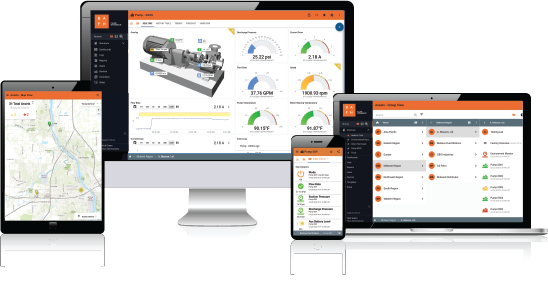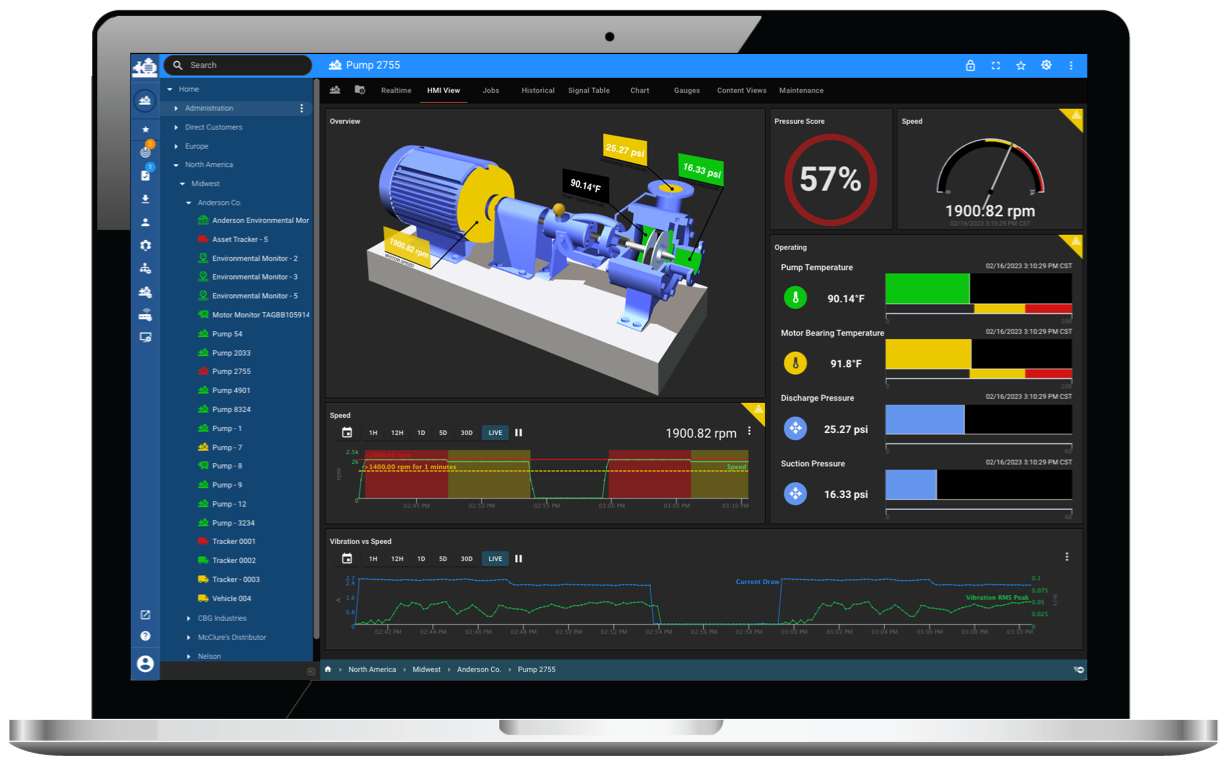Will Adobe Flash EOL affect your connected device application?
by Mike Aanenson, on September 23, 2020
As you may have heard, Adobe Flash is going end Of life (EOL) on December 31, 2020. You may be asking what this has to do with IoT and condition monitoring of equipment and assets. Or, you may be starting to sweat as you ping your developers to see if this affects you. Over the last decade, many applications were created using Flash for device management, dashboard visualizations, and remote monitoring. In fact, you may not even know that parts of your web-based application rely on Flash, as it was a trendy go-to for UI development over the last 20 years.
What this means for you.
Unfortunately if you're in this situation, your application essentially stops working at the start of 2021. The Flash content will be blocked from playing and users will be asked to uninstall the Flash player. If you've not been aware of this or don't yet have a clear path to convert your application to a more standard browser application, now is the time to make a plan.
Exosite's approach to IoT applications.
For years we've helped companies who had gone down the path of building custom applications on top of IoT platforms. Their projects spiraled out of control, never finished, or could not scale. Custom web applications notoriously get bogged down from too many feature requests, the learning curve of new UI frameworks, and too many stakeholders who want different things without a clear focus on what really matters initially.

Based on these experiences, we built ExoSense® as a condition monitoring application that works out-of-the-box for almost any industrial or commercial use case. Users can literally set the application up in minutes, and there are multiple options to help connect IoT devices, new or old. And, it has critical features most use cases need, like customer access permission management, customizable dashboards with lots of panel options, and and off the shelf rules for triggering notifications.
In creating ExoSense , we've chosen to utilize lightweight technologies that are natively supported in increasingly standardized modern browsers. And, we've leveraged tech aligned with W3C recommendations, like HTML5, SVG and JavaScript, over proprietary libraries. As a result, we're future-compatible and mobile-ready.
How can we help?
If you've found yourself in this situation, we'd be happy to have a quick phone call to see if we can help or set up a demo to see if ExoSense fits your needs. If it does, here are the steps to get you going:
- Application setup: ExoSense can be deployed and configured within a day, including branding, customer user role permissions, and digital asset dashboards.
- Device data: There are multiple ways to get your connected device data into the ExoSense application, including:
- Converting your device firmware to connect directly to our IoT Connector device API.
- Using our off-the-shelf integrations to move data from one platform to ours.
- Working with Exosite on a custom integration.
- Onboarding users: You can then begin inviting customers to their own group node in the application with access to their digital asset and equipment.
Exosite offers support and onboarding packages to help ease this transition and get you up and running quickly.




